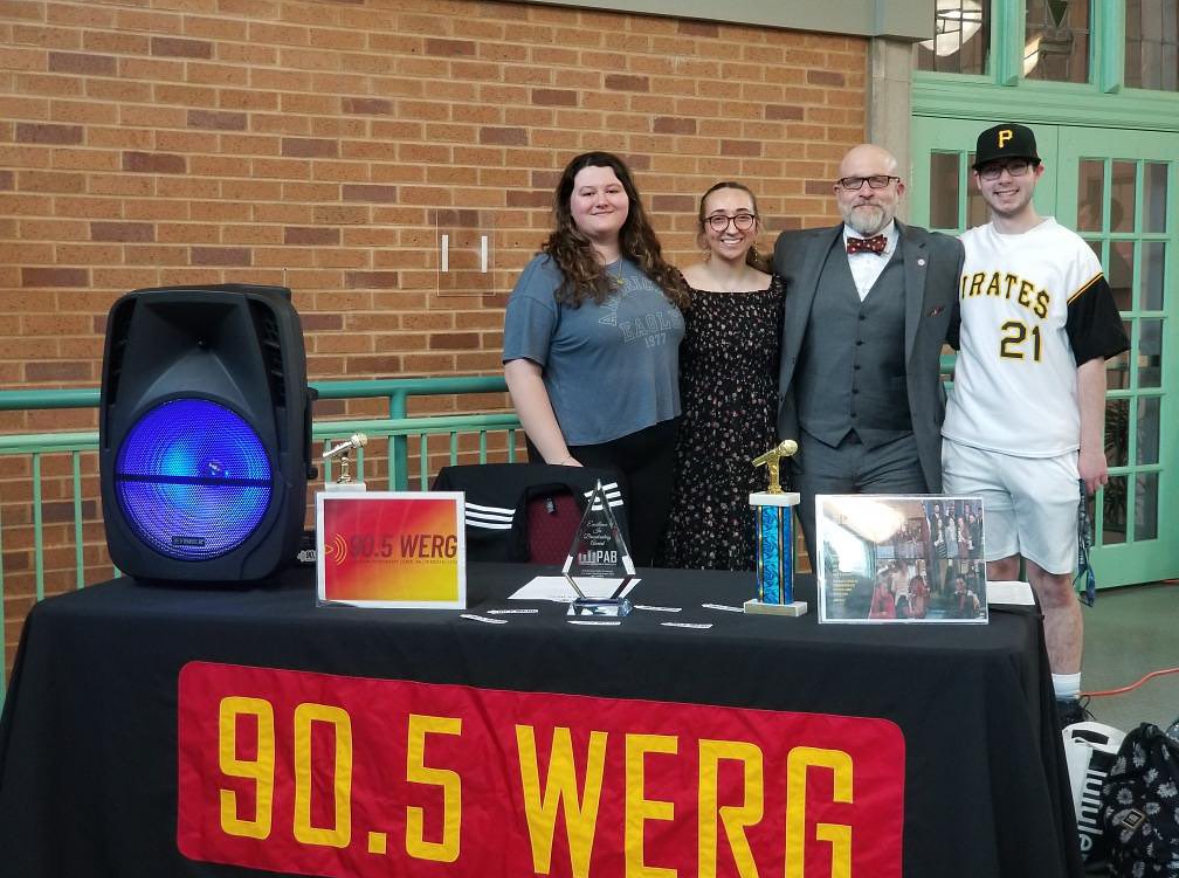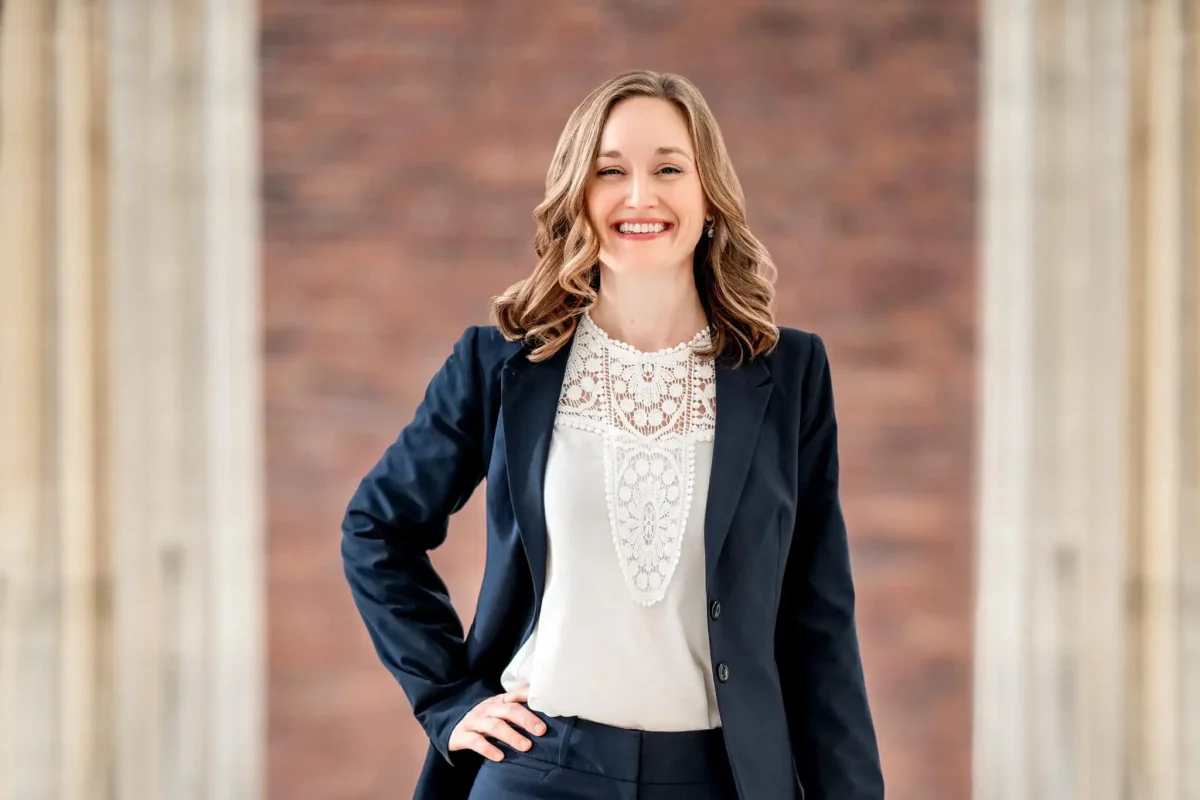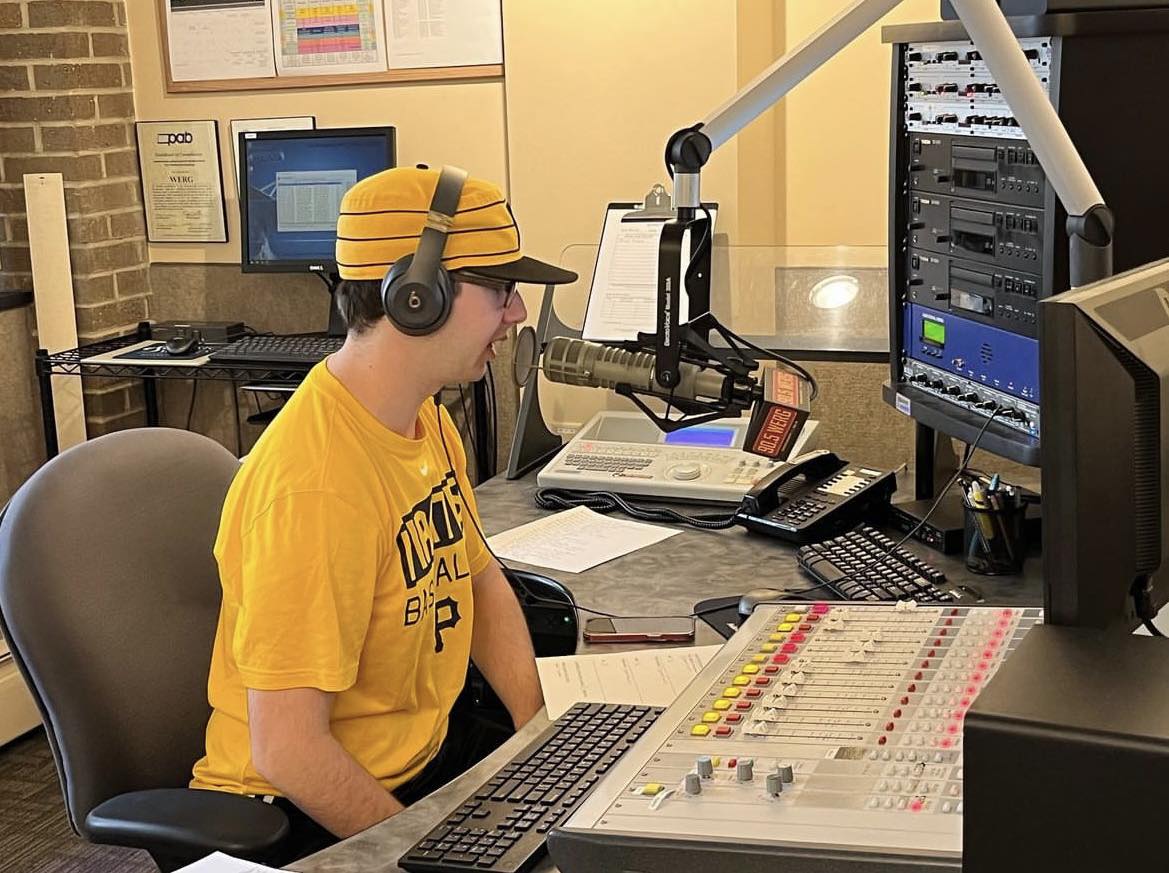Food, religion, culture and hometowns are just some of the topics international students discuss with their American partners.
The interaction is part of Gannon University’s Conversation Partners Program supervised by the English as a Second Language Department.
According to Philomena Rad, associate director of ESL, the program has been running for more than five years. It was run by the International Student Office until the beginning of the year, when it was transferred to ESL, in which most of the international conversation partners are enrolled.
The number of participants has increased over the years. More than 100 international students have been paired with American students, Rad said, mainly because of the cooperation of faculty members who incorporate the program into their curricula.
Carolyn Baugh, Ph.D., an assistant professor in Gannon’s history department, said she asked her students to join the program at a time the dean’s office said a principal issue international students were facing was interacting with American students.
Around the same time, Baugh said she realized some of her students had had very limited exposure to international students and cultures.
“I think having the two groups interact helps them with discovering their shared humanity, finding out that other people have the exact same issues,” she said. “I think it’s important to learn about different cultures and finding that sameness in difference.
“You learn about different cultures, different ways of doing things and you broaden your ideas about what’s acceptable and what’s the norm.”
Rad said the program benefits both international and domestic students in several ways.
“The international students benefit from it because they are able to practice their target language with a native outside of the classroom,” she said. “The domestic students are learning more about culture and are learning to appreciate culture diversity, which is a necessity in our global environment.”
Nouf Barbari, a second-year ESL student from Saudi Arabia, said the program helped her advance her English and understanding of American traditions.
“I learned more about the United States, shopping habits and foods,” she said.
Barbari, who joined the program in August, shared traditional foods with her partner, freshman physician assistant major Amanda Simbeck, including the customary Saudi dates.
“They were different from anything I tried before, but I thought they were really good,” Simbeck said.
Simbeck volunteered to become a conversation partner at the beginning of the semester because she was interested in meeting new people and learning more about cultures.
“I just think that it is a good experience that everyone should try,” she said. “I learned a lot of things about Saudi Arabia from Nouf.”
Simbeck and Barbari meet once a week and discuss the similarities and differences in lifestyles in Saudi Arabia and the United States, among other topics like food and how people are treated.
In addition to the 100 American students involved in the program, Rad said, two faculty and staff members have also signed up as partners to international students.
One of these is David Barker, Ph.D., an assistant professor of social and organizational studies, who joined the program to learn about other cultures and help the students.
Barker has partnered with Osamah Aldirgham, a graduate student from Saudi Arabia, at the beginning of the year.
The two have developed a strong friendship during the semester by talking about various issues starting from education costs, to jobs and income inequality and all the way to reasons why cars get pulled over in both countries.
“We have gotten to know each other like any two people who get to know each other would,” Barker said. “The interesting thing is, we have more similarities than you would realize.”
Barker said he hopes Aldirgham will get a further understanding of how to adapt in a different culture.
“He’s the one who is living here and frankly I think this is amazing,” he said. “He’s the one in a different culture and he’s trying to adapt and he’s doing quite an excellent job of it.
“I see this as an opportunity to help him do that a little more effectively.”
Barker said the experience has been enriching for him and that he recommends it to other faculty and staff members looking to learn something new.
Rad said the program helped partners form relationships that do not necessarily center around their meeting time, but extend beyond that to a personal level.
Partners sometimes meet in the open area outside of her office, where she sees them laugh and share stories and pictures.
Sometimes, however, students find it hard to schedule a suitable time to meet with their partners. One or both of them, Rad said, would have a full schedule or is a commuter, which makes it hard for them to set up a meeting time.
In that case, and in any event where either of the students face a problem, Rad reassigns each of them to different partners who may be more flexible.
One of the other downsides to the program, Rad added, was its possible lack of sustainability, as the partners are only assigned for a period of a semester, which means the students would have to find new partners again for the next semester.
“Our door is open to anyone who is willing to volunteer,” Rad said. “It’s a great program and a worthwhile experience for everyone involved.”
HIBA ALMASRI







